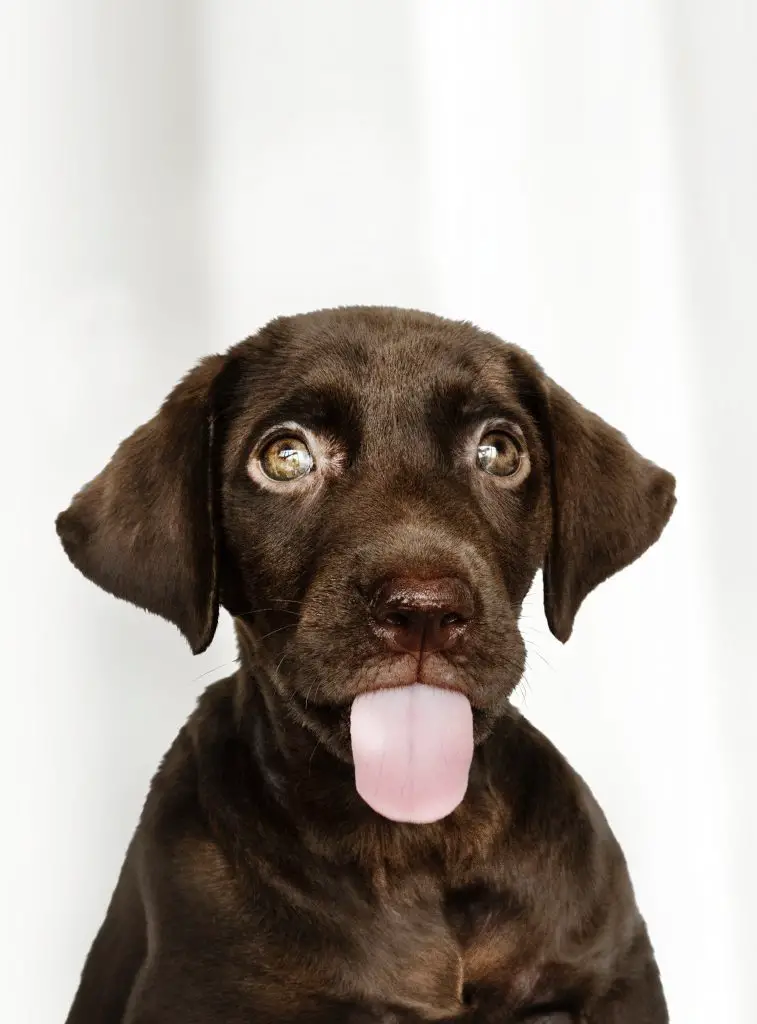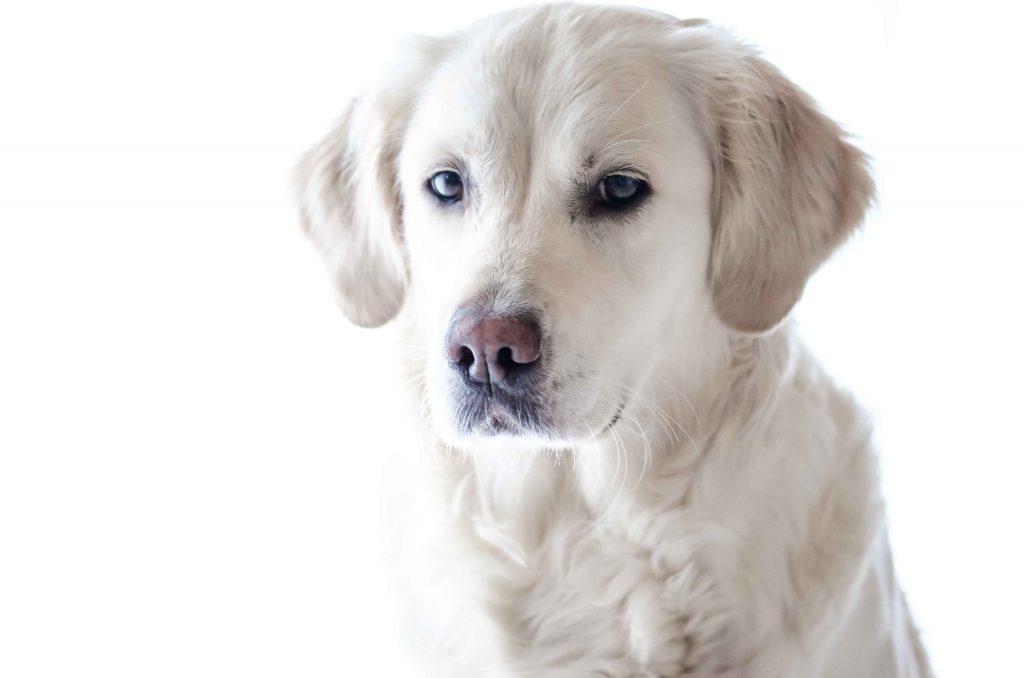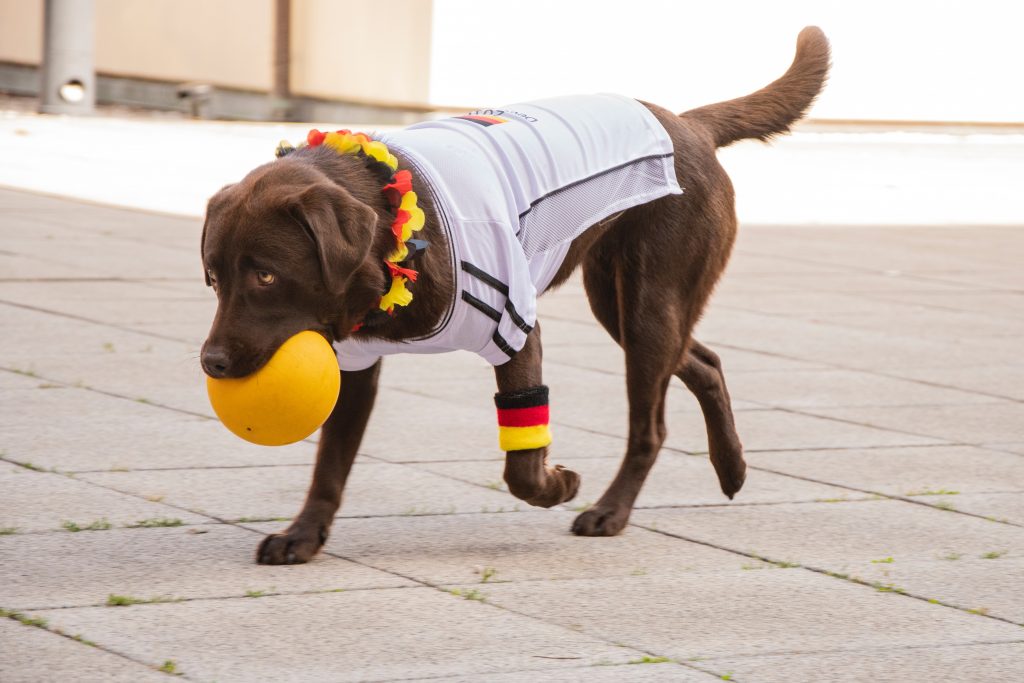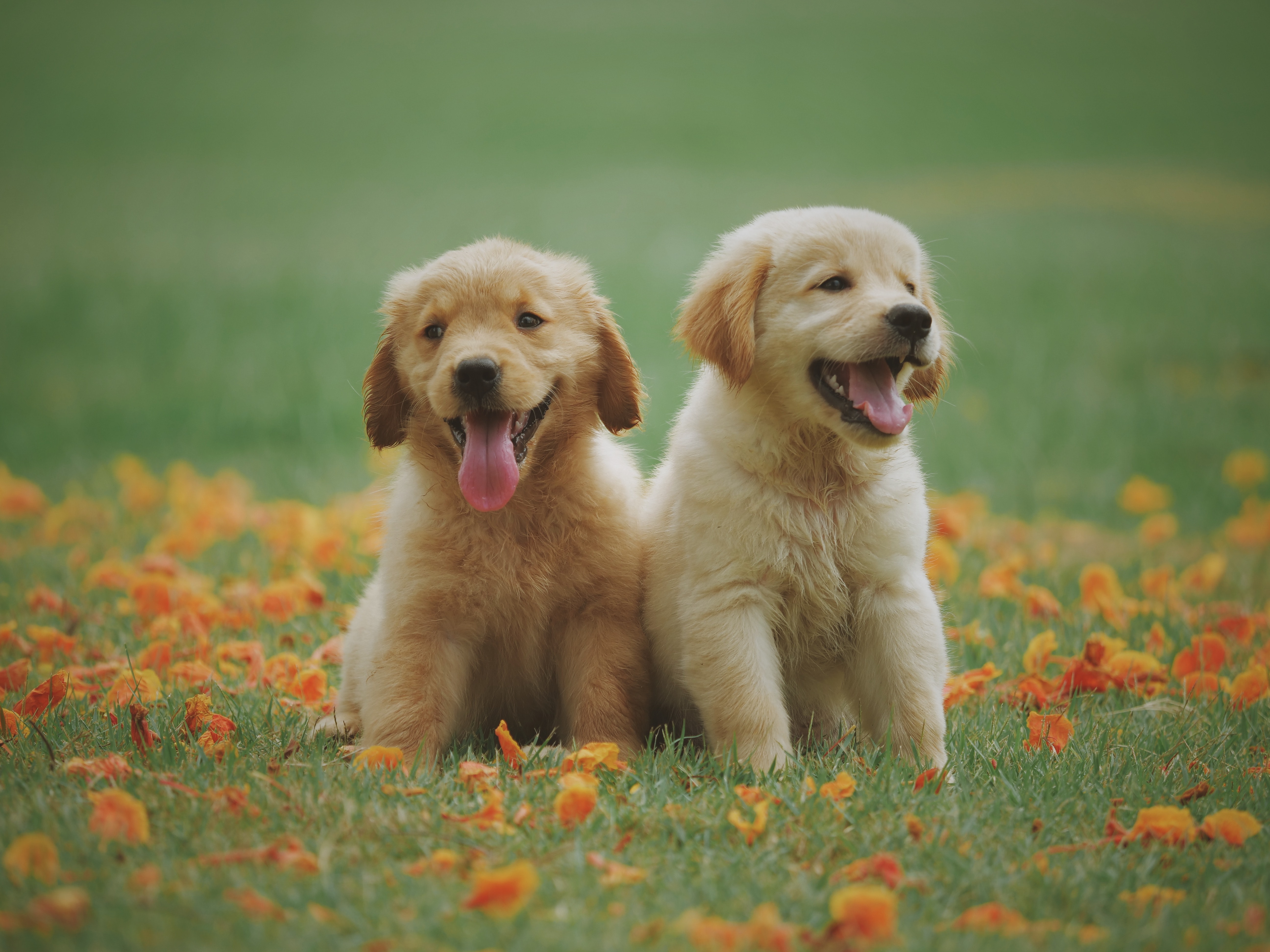The Labrador Retriever is the most popular breed in America, and they come from a great lineage. If you’re thinking about adopting one, I’ll also tell you how to train a lab puppy efficiently.
They have maintained the number one spot for 28 years, but what makes them so unique? Labrador Retrievers breeding process mixes the best of both worlds, which are super friendliness and hard working ethics.
Table of Contents
How to train a Lab Puppy- The Labrador’s profile
They are the perfect family dog. Labradors are very friendly, energetic, and great around other pets, strangers and children. They are very athletic, so vigorous daily exercises are a must. Labradors are also great hunters!
It is safe to say that their demeanors shine brighter than any diamond.

Their coats come in three beautiful shades.
- Black
- Brown
- Yellow
They shed quite a bit, but they’re easy to groom. Most importantly, though, Labradors are easy to train so buckle up to learn some Labrador training tips.
How to train a Lab Puppy – Puppy training age
When should you start training your puppy? Answers tend to vary between experts. Some say you shouldn’t train a puppy until they turn six months old, while others give you the green light at eight weeks. Who do we believe though in this battle of convenience versus ethics?
Ethics should be the winner of course, but there is so much to the story than what peaks at the surface. You see, puppy training these days is very gentle and mostly based on a simple tactic, which is positive reinforcement.
What’s positive reinforcement?
It is a training technique were you reward good behaviors, and turn a blind eye to undesired behaviors.
The rewards aren’t anything big or complicated. They could be as simple as just giving them treats, taking them on a walk, or just praising their excellent work.
Why at eight weeks specifically?
The recommended age at which puppies can separate from their litterbox and mother is at eight weeks. At any younger age, the puppy becomes prone to developing some behavioral problems. This could seriously affect the lab’s mental health.

This means that puppies usually get adopted at the age of eight weeks. Since it is recommended to start the dog training right away, puppy training ends up begining when they’re eight weeks old.
And that solves the mystery of; ” Where does the recommended age of eight weeks come from?”
Why start at eight weeks old vs six months old?
Like mentioned previously, we’re only going to rely on positive reinforcement. Whether you want to train your eight weeks old lab puppy or six months old lab, the tactics will be pretty much the same. However, the training will go so much smoother when they’re eight weeks old.
Think of learning and forming new habits. It is easier and faster for kids to acquire new habits than adults. While a six months old lab isn’t practically an adult, they’re more developed and prone to resist the training than an eight weeks old puppy.
How to train a Lab Puppy- Types of training
You could train your lab pup to do some fun tricks like sitting on command, but today I am going to focus on more essential forms of training. These will include:
- House Training; aka, potty training
- Crate Training
- Bite training.
No matter what type of training you’re about to implement with your puppy, remember the second half of the positive reinforcement definition. Turn a blind eye to undesired behavior. Be mindful and remember that you’re basically dealing with a baby.
They are clueless about what they are doing, and becoming angry over their actions will plant a seed of fear and trust issues in their young impressionable minds. Patience forms a strong base ground to a well-trained dog, so actively try to exhale your anger and annoyance away when your puppy does something wrong.
House/ Potty Training
Potty training is probably the first thing you’ll be interested in tackling. Know that during the first few weeks, you can’t avoid the pain of seeing your dog’s poop inside your house. Here are some tips to help you potty train your lab pup.
First thing, you have to understand how often they need to go to the bathroom. Puppies need to go out to poop more frequently than dogs, but how often exactly?
It is a straightforward equation. All you need to do is know your puppy’s age in months. You take their age and equate it to how many hours to wait before taking them to the bathroom.
If your dog is four months old, then you should take them out to poop every four to five hours. Once they hit eight months and older, the frequency gets set to taking them out every eight hours.
When a word is repeated frequently at a specific moment in time, the outcome could turn out to be very beneficial. This why I highly recommend using trigger words not only while potty training, but also during other types of training.
Every time you take your dog out to poop, use a specific word or phrase. If you say potty time, for example, every time you take them to your pooping spot, they’ll eventually understand what this phrase means.
To avoid your entire house being a mess, limit your puppy’s access to only a couple of rooms instead of the entire house.
Read our Top 15 Puppy Potty Training Tips and Tricks for more information on how to potty train your puppy.
Crate training
Crate training is another controversial topic. Some people think it is a tool of torture and completely unethical. The tool itself isn’t wicked in any way shape or form, though. It is how you choose to is used. If used correctly, it is going to be very beneficial for you and your puppy.
What is crate training?
Crate training is a process to familiarise and train your dog to view the crate as a haven. Crates come in different sizes, so make sure to pick a crate that is big enough for your lab puppy to stand in and move around easily.
If you are wondering why you should crate train your puppy, the reasons are plenty.
This could be very beneficial during the potty training phase as well as behavioral training. If you plan on frequently traveling with your dog, crate training them is going to be extremely beneficial.
How?
Because a dog who is crate trained will stress less about being in a new environment. I learned that lesson the hard way when I traveled with my fluffy pet without crate training her. Read my story and learn more about crate training by reading the How to Crate Train A Dog | The Ultimate Guide blog post.
One quick thing I must add is to never crate train your puppy for longer than four hours at a time. Anything more than that is unethical and considered to be animal abuse.
Bite training
First of all, let us talk about why puppies bite. They bite because they are teething. The teething phase begins when the puppy is three to four months old and ends when they turn seven months. Besides teething, lab puppies also bite while playing.

I come baring good news! It is possible to reduce and perhaps even prevent your puppy from biting before they turn seven months old. I am going to teach you one trick today.
You have to make the puppy understand that biting a human isn’t okay. Remember my speech earlier on how words are powerful? We’ll add to that some acting and uttering some sounds of pain, and that will give us the secret potion we need.
Whenever your dog bites you, say ouch and pretend to be sad. Whimper a bit, then turn your back to the dog. They’ll understand that what they did was wrong because dogs sometimes hurt one another while playing.
When this happens, the hurt dog whimpers, signaling to the other dogs to slow down. The whimpering means that the dog got hurt because of how rough the other dogs were playing. For more information on how to prevent your puppy from biting, click here.
Now that you have all of the basic information required to training a Labrador Retriever puppy, when do you plan on training them? Will you wait until they turn six months old, or are you convinced that it is okay to start at eight weeks?

